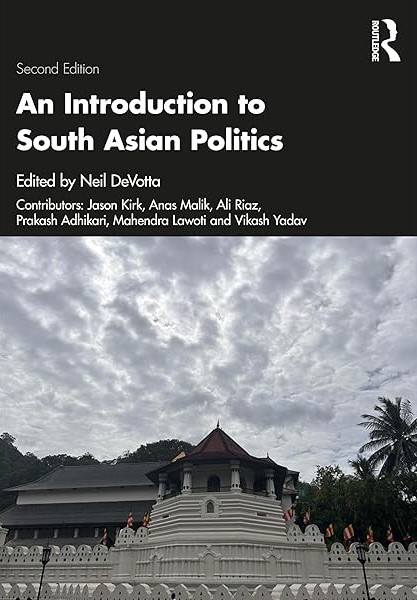Behind the Book: Q&A with Dr. Neil DeVotta
By Erin Marlow
Professor of Politics & International Affairs Neil DeVotta recently published the second edition of his book, An Introduction to South Asian Politics. The book provides an overview of the unique social, political, and economic underpinnings of six South Asian countries and offers important insights into the region’s history. Published in February 2024, it is the first of its kind to systemically focus on the region’s politics and policies and includes a comparative analysis of each country’s projected democratic development.
DeVotta recently spoke with the Dean’s Office about the origins of the book and its role in the classroom.
What inspired you to write this book?
This is the second edition of an edited volume, and the basis for initiating it was the Politics and Policies of South Asia class I teach (POL 246). Editing the book ensured the respective chapters were structured and included material in line with what I felt was necessary to teach the class effectively.
What was a major challenge that you faced in your research?
The book is centered around six highly diverse and complicated countries. Scholars get called “South Asian experts.” There is no such thing! The maddeningly diverse region and its crosscutting cleavages are impossible for a single individual to master. So, it takes a team to put together a book of this nature. But working with such a team that had to focus on contemporary politics during Covid-19 was a challenge, and this was a big reason the publication was slightly delayed.
What would you say is your project’s unique contribution to the field? Larger society?
There is no other book that focuses systematically on the politics and policies of the main South Asian countries. It also includes a chapter on Afghanistan’s politics, and this is a country that often gets left out from similar publications for various reasons.
How do you involve students in your research? How do you bring your research into the classroom?
There is hardly a class I teach that does not incorporate my research and publications, which means the poor students are forced to read some of my essays. This is especially so when it comes to the Contemporary India class (POL 241) and Politics and Policies in South Asia class. This book operates as the primary text in the latter. Edie Bradshaw, a Politics and International Affairs senior who graduated in May, rectified stylistic discrepancies and gaps within the chapters and helped finalize this manuscript for publication. She proved to be a massive help! Amna Ahmad is a rising sophomore who is also involved in helping me with an ongoing research project.
What’s next? Do you see your research evolving for future publications? Anyone at Wake Forest you would like to partner with?
A research paper I am currently working on deals with the incentives and disincentives of vote pooling in Sri Lanka, and it will be published as a chapter in an edited volume. An ongoing project analyzes China’s Belt and Road Initiative (BRI) in South Asia. There are some faculty in my department who study the BRI; so, time permitting, a future collaboration may be possible.
An Introduction to South Asian Politics, Second Edition


Scholars get called ‘South Asian experts.’ There is no such thing! The maddeningly diverse region and its crosscutting cleavages are impossible for a single individual to master. So, it takes a team to put together a book of this nature.
Dr. DeVotta

